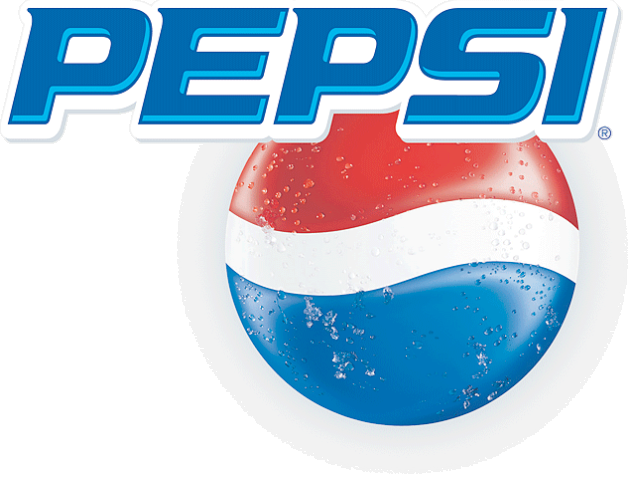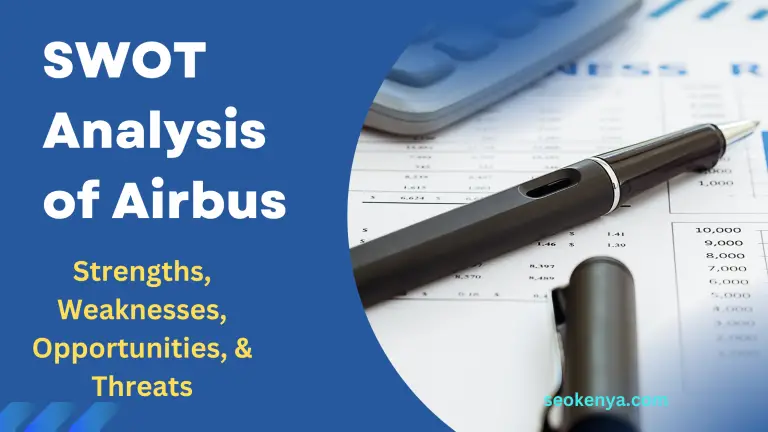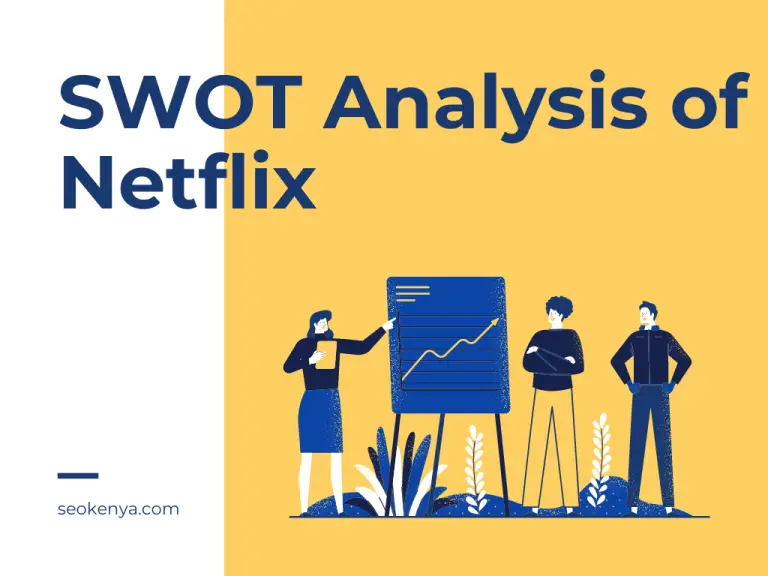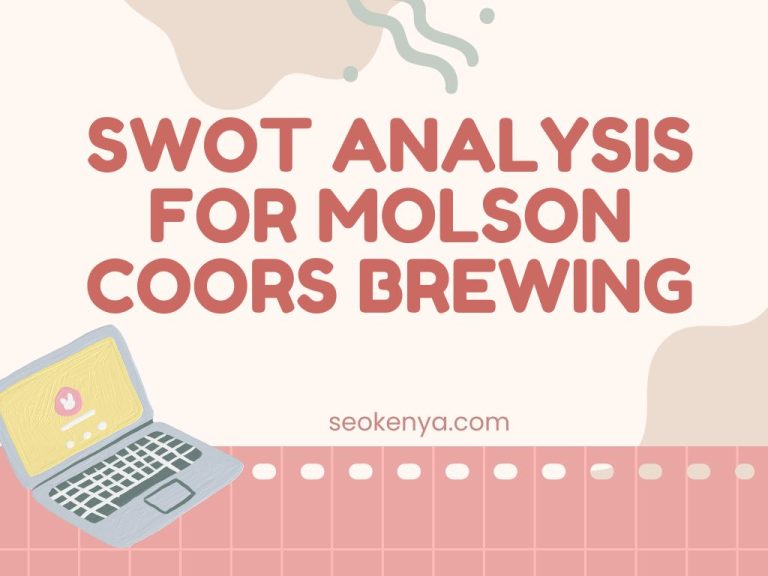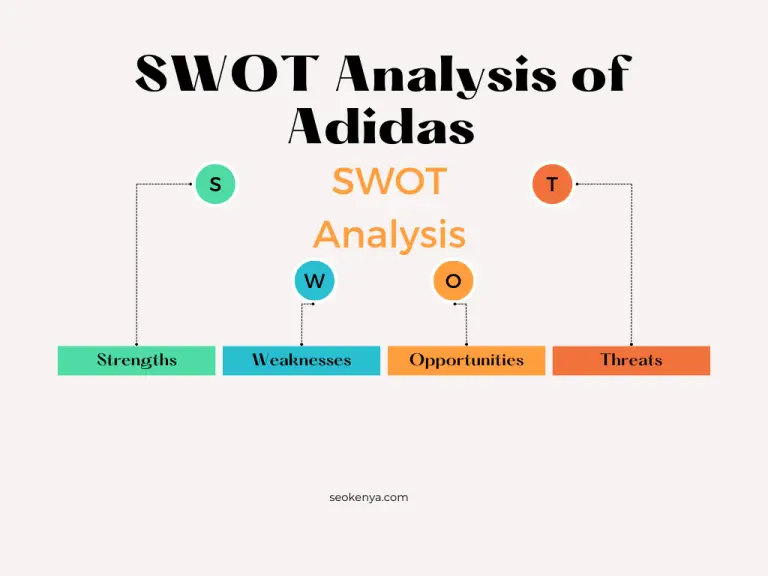A Comprehensive PepsiCo SWOT Analysis: Understanding the Strengths, Weaknesses, Opportunities, and Threats
PepsiCo is one of the largest multinational food and beverage corporations in the world, with a vast portfolio of well-known brands and products.
The company’s success is a result of its focus on delivering quality products, innovative marketing strategies, and efficient operations.
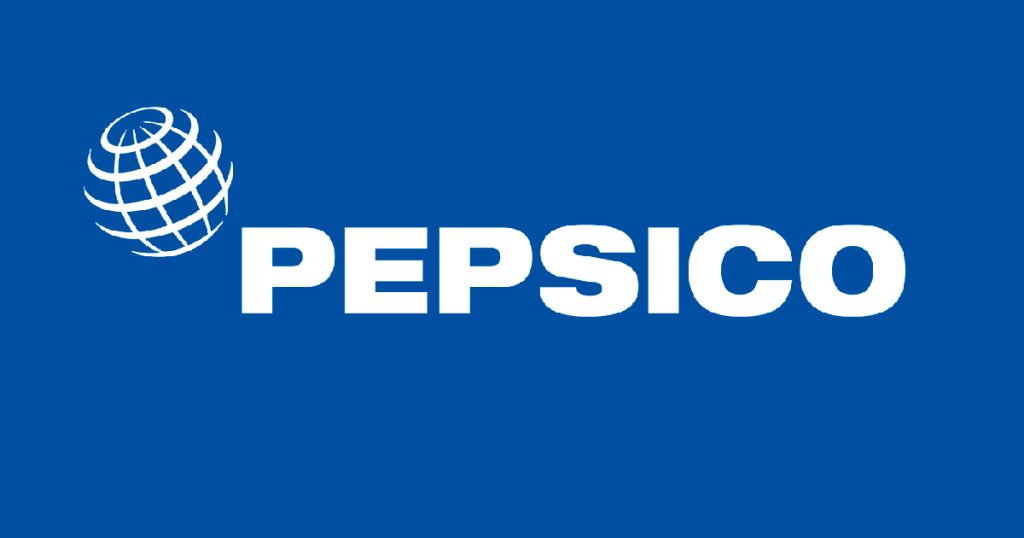
Pepsico Company Profile Overview
Here’s a company profile overview summary table for PepsiCo:
| COMPANY NAME | PEPSICO, INC. |
| Headquarters | Purchase, New York, U.S. |
| Founded | 1965 (from the merger of Pepsi-Cola and Frito-Lay) |
| Founders | Caleb Bradham (Pepsi-Cola), Herman Lay (Frito-Lay) |
| Industry | Food and Beverage |
| Products | Carbonated and non-carbonated beverages, snacks, and other food products |
| Key Brands | Pepsi, Mountain Dew, Gatorade, Tropicana, Frito-Lay, Quaker, Doritos, Tostitos, Cheetos |
| CEO | Ramon Laguarta (since 2018) |
| Employees | Approximately 309,000 (2022) |
| Revenue | $86.8 billion (2022) |
| Net Income | $9.6 billion (2022) |
| Stock Ticker | NASDAQ: PEP |
PepsiCo is one of the largest food and beverage companies globally, with a diverse portfolio of popular snack and beverage brands. It operates in more than 200 countries and territories worldwide.
In this article, we will be conducting a SWOT analysis of Pepsico to gain a deeper understanding of its strengths, weaknesses, opportunities, and threats.
Strengths of PepsiCo
- Strong brand recognition and loyalty: Pepsico has a vast portfolio of well-known brands that have been established for many years, such as Pepsi, Frito-Lay, and Tropicana. These brands have developed a strong reputation and customer loyalty, making it easier for the company to introduce new products and expand into new markets.
- Diversified product portfolio: Pepsico’s portfolio of products is diverse and includes beverages, snacks, and other food items. This diversification helps the company to mitigate risk and ensures that it is not overly dependent on a single product or market.
- Global reach: Pepsico operates in over 200 countries and has a strong presence in emerging markets, such as China and India. This global reach gives the company access to a large and growing customer base, and helps to mitigate the impact of economic or political instability in any single market.
- Strong distribution network: Pepsico has a well-established distribution network that reaches customers in both urban and rural areas. This network is critical for the company to get its products to market effectively and efficiently.
Weaknesses of PepsiCo
- Dependence on carbonated soft drinks: Despite its diversified product portfolio, Pepsico is still heavily dependent on carbonated soft drinks. This dependence makes the company vulnerable to changing consumer preferences and health trends, which have led to a decline in demand for sugary drinks.
- Intense competition: Pepsico operates in a highly competitive market, with many large players, such as Coca-Cola, vying for market share. This intense competition makes it difficult for the company to maintain its market position and grow its revenue.
- Increasing regulatory pressures: Pepsico faces increasing regulatory pressures, particularly in relation to its products and marketing practices. For example, there are growing concerns about the impact of sugary drinks on public health, which could result in increased regulations and taxes.
- Limited organic growth: PepsiCo’s revenue has been growing, but at a slower pace compared to other companies in its industry. This limited organic growth makes it difficult for the company to achieve its long-term financial goals and remain competitive.
Opportunities of PepsiCo
- Growing demand for healthier products: There is a growing demand for healthier food and beverage products, as consumers become more aware of the impact of their diets on their health. Pepsico has an opportunity to tap into this trend by introducing healthier options to its product portfolio.
- Expansion into new markets: Pepsico has a strong global presence and can expand into new markets, such as Africa and Southeast Asia, to reach new customers and grow its revenue.
- Innovation: Pepsico has a strong tradition of innovation and can continue to develop new and innovative products that meet the changing needs and preferences of consumers.
- Growing demand for plant-based and organic products: There is a growing demand for plant-based and organic products, which are perceived as healthier and more environmentally friendly. PepsiCo can take advantage of this opportunity by developing and marketing more products in these categories.
Threats of PepsiCo
- Changing consumer preferences: Pepsico is vulnerable to changing consumer preferences and trends, particularly in relation to health and wellness. If consumer preferences continue to shift away from carbonated soft drinks, the company may face challenges in maintaining its market position.
- Economic and political instability: Pepsico operates in many countries with different levels of economic and political stability. This makes the company vulnerable to economic and political instability, which could impact its operations and revenue.
- Increased competition: Pepsico faces increased competition, particularly from new entrants into the market and smaller, nimbler competitors. This increased competition could make it difficult for the company to maintain its market position and grow its revenue.
- Commodity price fluctuations: Pepsico relies on a variety of commodities, such as sugar and corn, to produce its products. Fluctuations in commodity prices can impact the company’s profitability and its ability to deliver consistent returns to its shareholders.
- Increasing regulation of sugary drinks: The growing public concern about the negative health effects of consuming too much sugar has led to increased regulation of sugary drinks. This regulation could negatively impact PepsiCo’s revenue and profitability, as well as its reputation with consumers.
Conclusion
In conclusion, Pepsico is a strong and well-established company with a diversified product portfolio, global reach, and strong brand recognition.
However, the company faces a number of challenges, including dependence on carbonated soft drinks, intense competition, and increasing regulatory pressures.
To overcome these challenges and maintain its market position, Pepsico must continue to innovate, expand into new markets, and respond to changing consumer preferences.
